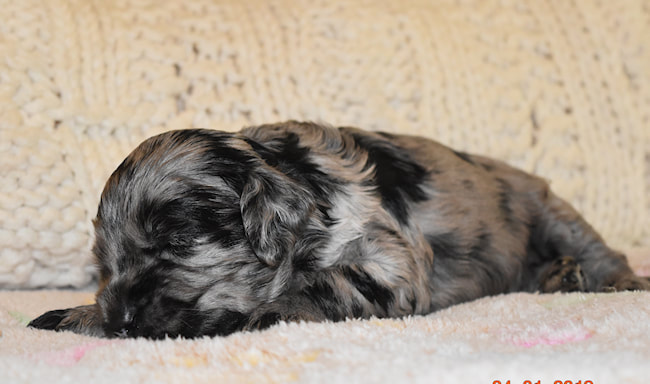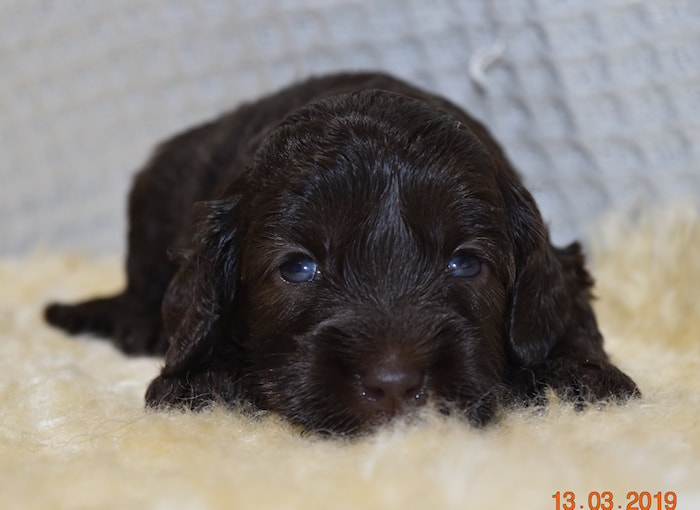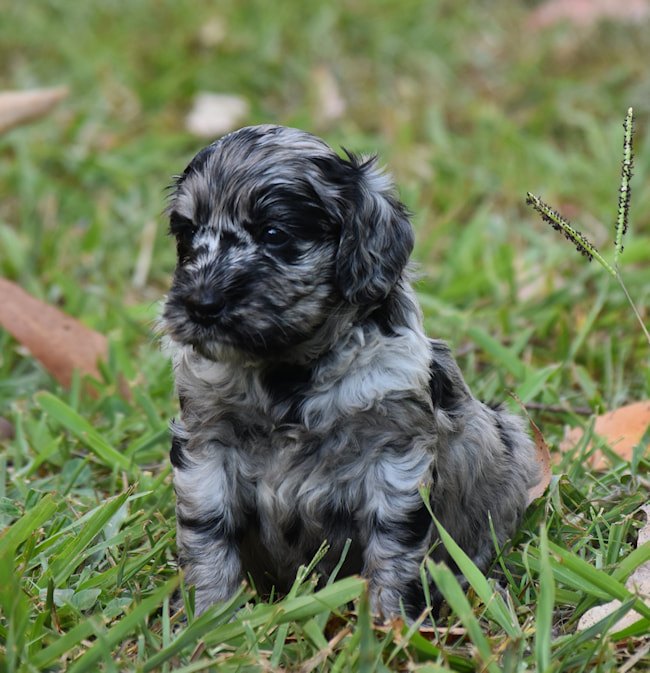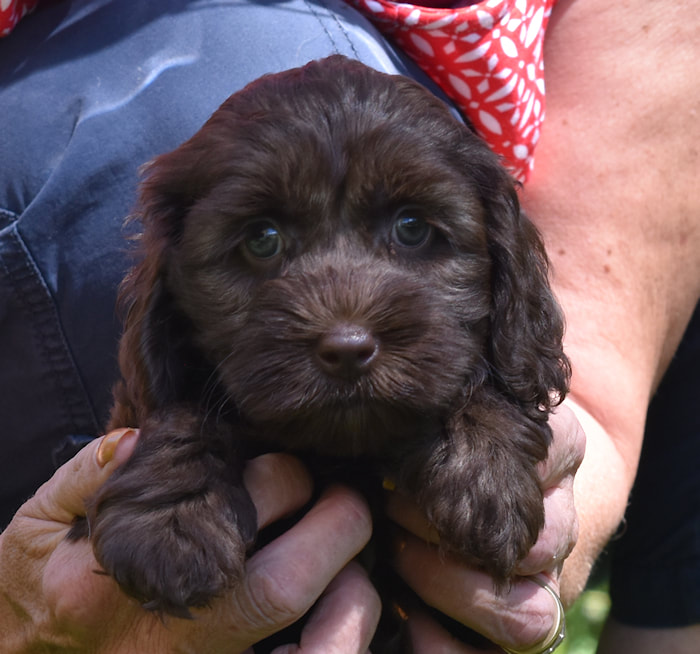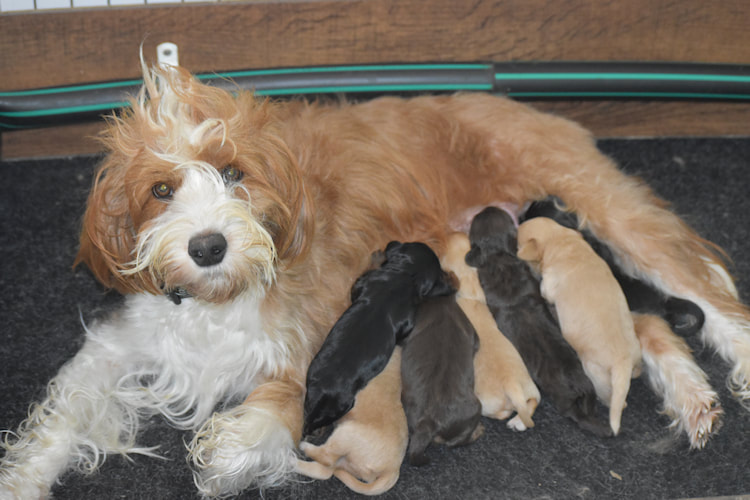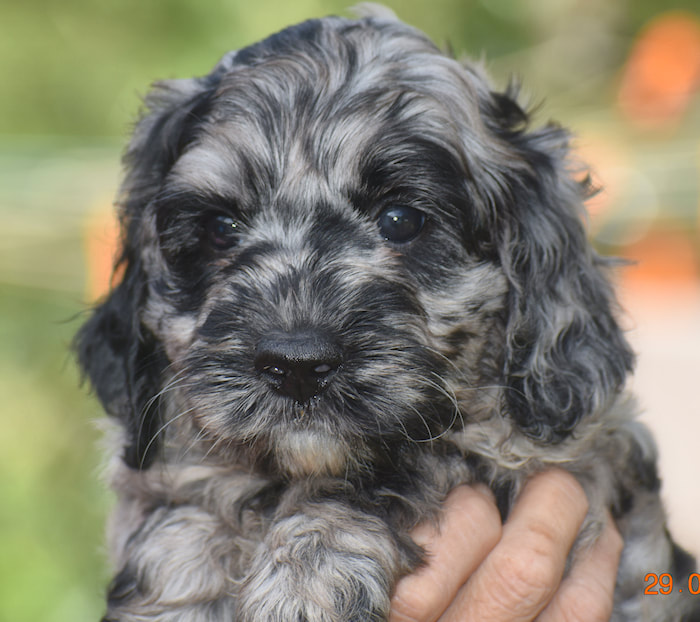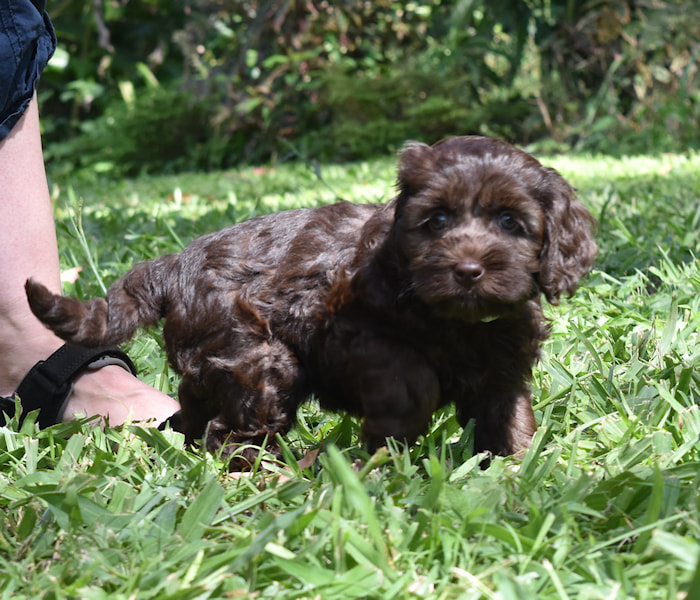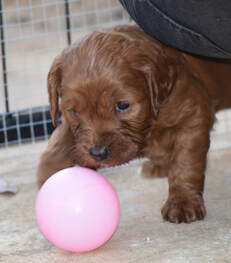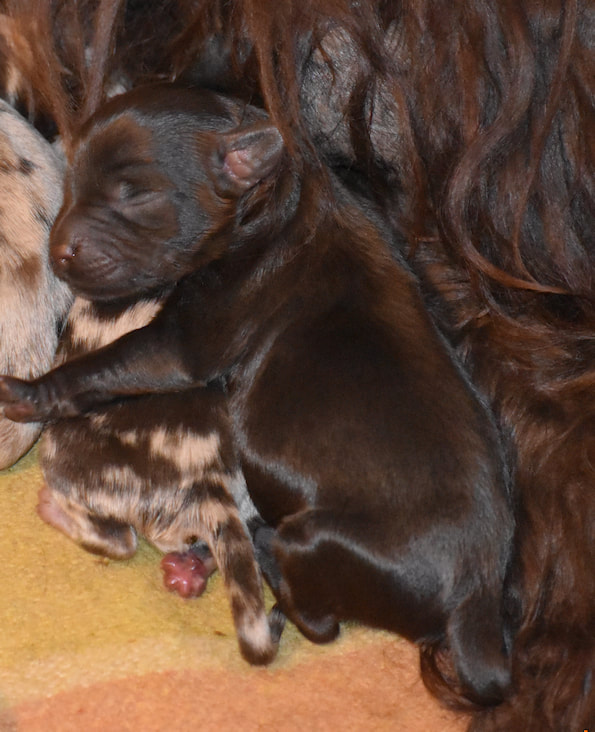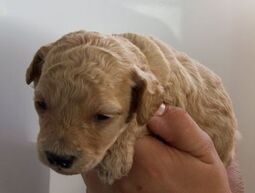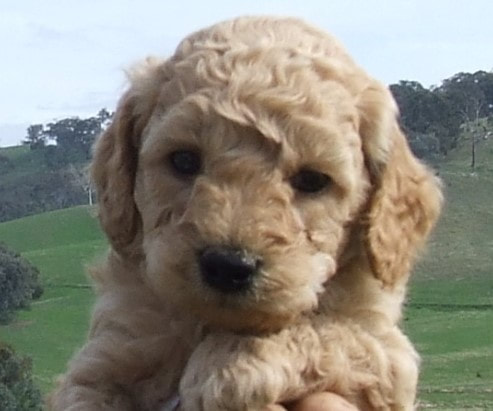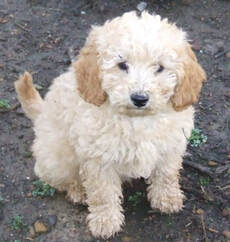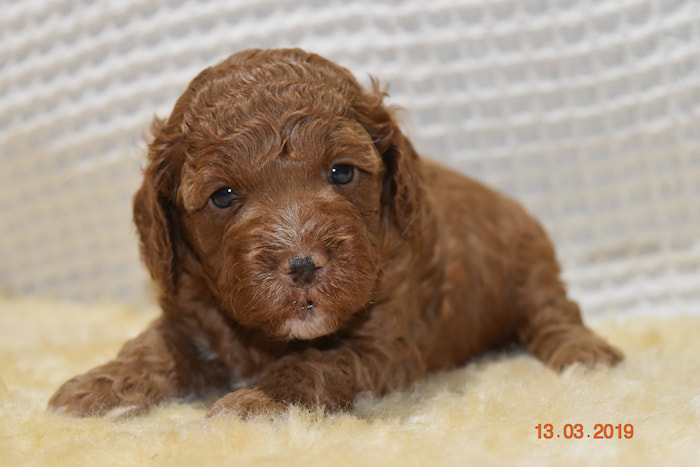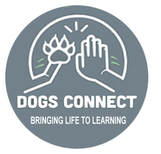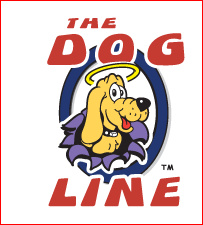A LITTLE ABOUT WHAT WE DO
We have always spent many hours developing our puppies life experiences from the day of their birth. Not so long ago this type of puppy raising was and still is being researched, Called Early Cognitive development is the most common term used. What we have always believed, in has now become scientifically recognized as a superior advantages way to raise puppies. Maybe that is why Tegan puppies have been so amazing for so many decades?
SEE A GREAT VIDEO HERE https://worldreadypets.com/articles/early-neurological-stimulation
We focus on early learning because a puppy’s first seven weeks are a time of tremendous growth and development. Early learning experiences have profound implications for later success in life.
Behavior is never entirely inherited or entirely acquired. It is a combination of hereditary and environmental factors. However, it can be profoundly guided and modified by the influence of experience.
Every experience a puppy has will stimulate neural development which results in brain development. As the brain develops, so does the learning ability which stimulates more neural development.
Independent research has shown that in moderation, stress stimulates the brain and lymph nodes at the most crucial time in its development. When a puppy is stimulated during this time, his brain matures faster and he will grow up to have a larger brain with more cells… bigger cells… and more interconnections between them. Because the puppy’s brain is still in such a formative state, the experiences it undergoes at this early age will have a tremendous impact on the development of his mind. This is why the first weeks are such a critical period in the pup’s life. By managing his environment we can therefore influence the final form and structure of his brain. The Lymph nodes play a crucial part of the immunity system experiences convert to stress that affects heart function and blood flow, in turn feeding and building the lymphatic system, some have gone so far as to say, the stronger more developed immune system of a puppy raised in this way has lasting effects throughout the dogs entire life.
Research has also shown that by exercising the brain with mental challenges the total brain function improves, not just one area of it. Nerve conductivity is improved in both speed and accuracy, recovery time of the neural synapses is shortened as the chemical and electrical signals react faster, and the nerves can fire repeatedly quicker. The brain mass increases dramatically as nerve cell density increases, and overall brain efficiency improves significantly. So, with our early intervention, we're actually helping the puppy's brain and immune system develop to it's fullest potential.
The most influential time of a puppy's life is between three days of age and seven weeks. Fear is not present in newborn puppies. It begins to develop at 4 weeks of age, and increases gradually until it escalates in the fear imprint period during the seventh to ninth week of life. and again in the 12 to 18th week of life and again at the 8 to 10 month of life.
The positive stimuli and exposure to a variety of activities, noise and experience’s will be permanently ingrained in the central nervous system and remembered as something that was pleasant or neutral, or negative, because such a variety of positive experiences are acquired at the crucial age timeframes they are permanently ingrained. we also begin to develop their problem-solving abilities, mental agility and mental coordination. It's a perfect time to begin their support/assistance dog training too!
Scientific studies have established that various types of stimuli can have marked, long-term effects on the behavioral and physical development of some mammalian neonates including puppies. These effects include accelerated maturation of the nervous system, more rapid hair growth, and weight gain, enhanced development of motor and problem solving skills, and earlier opening of the eyes. In behavioral terms, canine neonates exposed to varied stimulation from birth to five weeks of age were found to be more confident, exploratory and socially adept when tested later in strange situations than un-stimulated control groups.
As they start to reach 7 weeks of age and independent of their mother and able to cope being separated from their siblings for short periods we teach them to be content in a crate alone and then we start tether training so they feel confident tied to a leash, as they progress they spend time more time away from their siblings for up to an hour at a time learning patience and self confidence, this is when we let them interact with our adult dogs continuing to learn canine social skills within a couple more weeks they are well equipped to move to their new homes or start training.
Added to this early learning program is the unique intellectual abilities of the Australian Cobberdog making each puppy more capable of coping in new situations throughout life and will have an increased capacity to learn, Then comes our phase 2 at 3 to 5 weeks of age when we continue a special program of handling and exposure to new things, sights and sounds as they transition through their first fear phase. After that comes phase 3 building on phase 2 and adding crate and collar training, vacuumed noises, rock n Roll, Classical baroque music, car rides and lots of different adventures that build a balanced trusting platform in ruddiness for you to take over. Please watch the videos on the link above it shows and explains why we set our standards so high, it is worth every second of our time.
Many will throw the ENS words around but few actually understand how to do it properly and why. We are just thrilled it has a proper scientific name, we have used our perfect puppy raising for many years without knowing how important and beneficial it was, we just thought we were a bit hippy left field but apparently not so.
It is still very important for all puppies to spend time with their littermates and mother and later other dogs to learn proper canine social behavior while at the same time we incorporate an environment that provides a comprehensive learning platform to build the human-canine bond, increase their social skills, build confidence and trust, exercise their bodies, and stimulate their minds. Yes we are very dedicated to what we do and have an unquenchable passion for each precious being we bring into this world.
IF YOU ARE A BREEDER READING THIS PLEASE DO YOUR RESEARCH< PERFECT PUPPY RAISING NEEDS TO BE DONE PROPERLY WITH GREAT CARE TO EACH INDIVIDUAL PUPPY, NOT EVERY PUPPY CAN START AT 3 DAYS OLD, NOT EVERY PUPPY CAN DO IT EACH DAY, SOME PUPPIES FEEL BETTER ON A FULL TUMMY, SOME DONT MIND BEING TAKEN OFF THE MILKBAR AND SOME DO. EACH BABY IS AN INDIVIDUAL WHO FEELS AND EXPERIENCES EACH MOMENT OF TIME DIFFERENTLY. SPENDING THE FIRST 3 TO 5 DAYS WITH THEM WILL ENSURE YOU GET TO KNOW THEM AND CAN SUPPORT THEM WITH ENS CORRECTLY.
SEE A GREAT VIDEO HERE https://worldreadypets.com/articles/early-neurological-stimulation
We focus on early learning because a puppy’s first seven weeks are a time of tremendous growth and development. Early learning experiences have profound implications for later success in life.
Behavior is never entirely inherited or entirely acquired. It is a combination of hereditary and environmental factors. However, it can be profoundly guided and modified by the influence of experience.
Every experience a puppy has will stimulate neural development which results in brain development. As the brain develops, so does the learning ability which stimulates more neural development.
Independent research has shown that in moderation, stress stimulates the brain and lymph nodes at the most crucial time in its development. When a puppy is stimulated during this time, his brain matures faster and he will grow up to have a larger brain with more cells… bigger cells… and more interconnections between them. Because the puppy’s brain is still in such a formative state, the experiences it undergoes at this early age will have a tremendous impact on the development of his mind. This is why the first weeks are such a critical period in the pup’s life. By managing his environment we can therefore influence the final form and structure of his brain. The Lymph nodes play a crucial part of the immunity system experiences convert to stress that affects heart function and blood flow, in turn feeding and building the lymphatic system, some have gone so far as to say, the stronger more developed immune system of a puppy raised in this way has lasting effects throughout the dogs entire life.
Research has also shown that by exercising the brain with mental challenges the total brain function improves, not just one area of it. Nerve conductivity is improved in both speed and accuracy, recovery time of the neural synapses is shortened as the chemical and electrical signals react faster, and the nerves can fire repeatedly quicker. The brain mass increases dramatically as nerve cell density increases, and overall brain efficiency improves significantly. So, with our early intervention, we're actually helping the puppy's brain and immune system develop to it's fullest potential.
The most influential time of a puppy's life is between three days of age and seven weeks. Fear is not present in newborn puppies. It begins to develop at 4 weeks of age, and increases gradually until it escalates in the fear imprint period during the seventh to ninth week of life. and again in the 12 to 18th week of life and again at the 8 to 10 month of life.
The positive stimuli and exposure to a variety of activities, noise and experience’s will be permanently ingrained in the central nervous system and remembered as something that was pleasant or neutral, or negative, because such a variety of positive experiences are acquired at the crucial age timeframes they are permanently ingrained. we also begin to develop their problem-solving abilities, mental agility and mental coordination. It's a perfect time to begin their support/assistance dog training too!
Scientific studies have established that various types of stimuli can have marked, long-term effects on the behavioral and physical development of some mammalian neonates including puppies. These effects include accelerated maturation of the nervous system, more rapid hair growth, and weight gain, enhanced development of motor and problem solving skills, and earlier opening of the eyes. In behavioral terms, canine neonates exposed to varied stimulation from birth to five weeks of age were found to be more confident, exploratory and socially adept when tested later in strange situations than un-stimulated control groups.
As they start to reach 7 weeks of age and independent of their mother and able to cope being separated from their siblings for short periods we teach them to be content in a crate alone and then we start tether training so they feel confident tied to a leash, as they progress they spend time more time away from their siblings for up to an hour at a time learning patience and self confidence, this is when we let them interact with our adult dogs continuing to learn canine social skills within a couple more weeks they are well equipped to move to their new homes or start training.
Added to this early learning program is the unique intellectual abilities of the Australian Cobberdog making each puppy more capable of coping in new situations throughout life and will have an increased capacity to learn, Then comes our phase 2 at 3 to 5 weeks of age when we continue a special program of handling and exposure to new things, sights and sounds as they transition through their first fear phase. After that comes phase 3 building on phase 2 and adding crate and collar training, vacuumed noises, rock n Roll, Classical baroque music, car rides and lots of different adventures that build a balanced trusting platform in ruddiness for you to take over. Please watch the videos on the link above it shows and explains why we set our standards so high, it is worth every second of our time.
Many will throw the ENS words around but few actually understand how to do it properly and why. We are just thrilled it has a proper scientific name, we have used our perfect puppy raising for many years without knowing how important and beneficial it was, we just thought we were a bit hippy left field but apparently not so.
It is still very important for all puppies to spend time with their littermates and mother and later other dogs to learn proper canine social behavior while at the same time we incorporate an environment that provides a comprehensive learning platform to build the human-canine bond, increase their social skills, build confidence and trust, exercise their bodies, and stimulate their minds. Yes we are very dedicated to what we do and have an unquenchable passion for each precious being we bring into this world.
IF YOU ARE A BREEDER READING THIS PLEASE DO YOUR RESEARCH< PERFECT PUPPY RAISING NEEDS TO BE DONE PROPERLY WITH GREAT CARE TO EACH INDIVIDUAL PUPPY, NOT EVERY PUPPY CAN START AT 3 DAYS OLD, NOT EVERY PUPPY CAN DO IT EACH DAY, SOME PUPPIES FEEL BETTER ON A FULL TUMMY, SOME DONT MIND BEING TAKEN OFF THE MILKBAR AND SOME DO. EACH BABY IS AN INDIVIDUAL WHO FEELS AND EXPERIENCES EACH MOMENT OF TIME DIFFERENTLY. SPENDING THE FIRST 3 TO 5 DAYS WITH THEM WILL ENSURE YOU GET TO KNOW THEM AND CAN SUPPORT THEM WITH ENS CORRECTLY.
Over the last couple of years there has been an alarming increase of Labradoodle breeders switching to Cobberdogs, the result has been a flood of Labradoodles posing as Cobberdogs. I am seeing my worst fears become reality as more and more Labradoodle/Labradoodle/Spaniel mix puppies around the world selling as Cobberdogs, If the puppy you are interested in does not have Tegan and/or Rutland heritage born after 2012 then it possibly does not have true Cobberdog genetics, it will be a Labradoodle/Labradoodle/Spaniel /Australian Labradoodle mix, You will find a large number of these puppies will have soft fuzzy curly wool coats, where as the Cobberdog puppy is gently wavy or soft loose curls, Be sure the puppy you purchase is from registered MDBA parents.
Please take the time to do your research and be sure the puppy you buy will grow up to be the dog you want. Click here to learn more
Please take the time to do your research and be sure the puppy you buy will grow up to be the dog you want. Click here to learn more
AUSTRALIAN COBBERDOG PUPPIES NEW TO 10 WEEKS OLD
Note the more square shaped head and smooth shiny coats with no ripples
Note the more square shaped head and smooth shiny coats with no ripples
BELOW LABRADOODLES
Note the more pointed head and ripples on the very young and fluffy curls on the older ones
Note the more pointed head and ripples on the very young and fluffy curls on the older ones
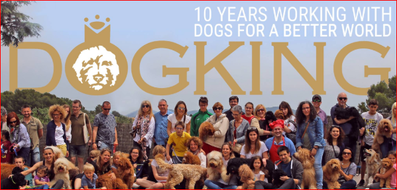
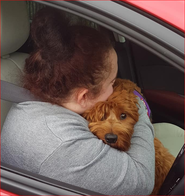
PRIME Driver training now have in car therapy support dogs, the magic these two dogs have made in the reduced stress of learner driving is nothing short of amazing. |
wE HAVE aslo PARTNERED WITH tHE DOG LINESince moving to our property in 2016 we trialed invisible fencing so our dogs could enjoy our acreage safely it has been a huge success even with the most gentle sensitive dog
The new receiver collars are lovely and small and very light weight and each one can be given the perfect control setting to suit the personality and sensitivity of each dog and puppy It is wonderful to have no visible fences just beautiful park like lawns for our dogs to enjoy with us and they are at a safe distance from road traffic and bush lands where deadly ticks lurk. we now highly recommend this wonderful way to contain your dog safely within your home boundaries and at an unbelievable price compared to wire, timber or tin fencing. WE CAN ORDER YOUR FENCE AT A GREAT DISCOUNT AND HAVE IT SHIPPED DIRECT TO YOU DYI or we can help you arrange full instalation and personal training for you and your dog/s Email us |
|
|
|
|
|
- SOMEONE ONCE SAID
"TEGAN DOGS MAKE LIFE EASIER"

